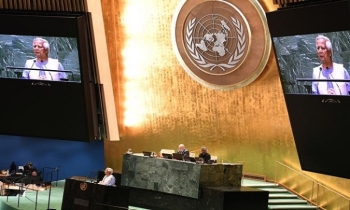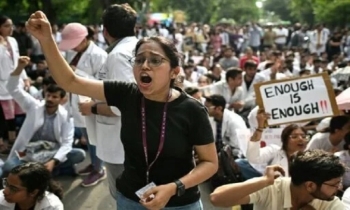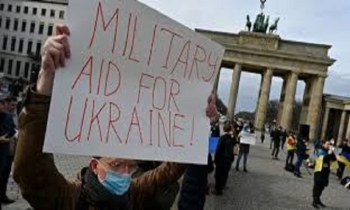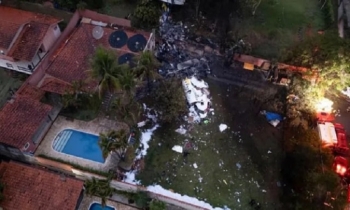How silence and compliance kept a Mafia boss at large
BI Desk || BusinessInsider
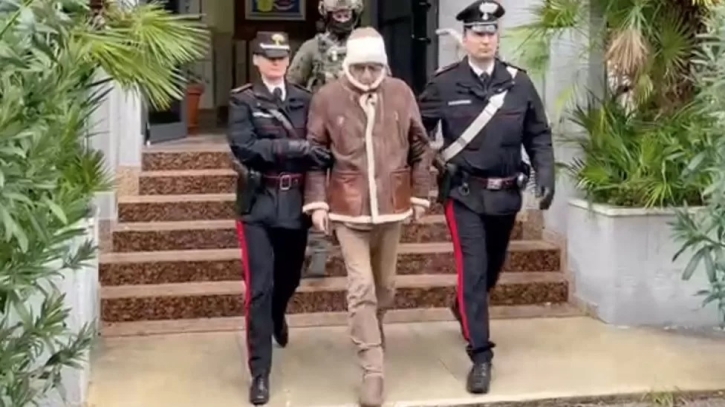
Photo: Collected
Palermo residents couldn’t have known for sure who the man being led to the police car was.
After all, it had been 30 years since he was last seen in public, reports BBC.
But over a hundred members of the armed forces had gathered in the narrow streets of Palermo that morning - and people knew of only one criminal who could elicit that kind of response.
Matteo Messina Denaro - the “boss of the bosses”, the last fugitive - had been found.
Applause and cheers broke out. Somebody high-fived a policeman; others went in for a hug; some had tears in their eyes. Everyone was beaming.
Later, Maria Falcone told Italian media she wished her brother could have witnessed the scene.
Anti-mafia magistrate Giovanni Falcone was murdered by Sicily’s Cosa Nostra, spearheaded by Messina Denaro, in 1992. It was the height of the “massacre season” that had plagued Italy in the early 1990s.
At the time, Messina Denaro’s organised crime syndicate was attempting, through a sustained murder campaign that killed more than 20 people, to force the state into negotiations about the hard prison regime for jailed Mafia associates.
Messina Denaro once reportedly boasted he could “fill a cemetery” with his victims.
He was instrumental in the 1993 kidnapping and killing of Giuseppe Di Matteo, the 11-year-old son of a mafioso-turned-state witness. The boy was held in captivity for two years before being killed; his body was dissolved in acid to prevent the family from burying him.
Messina Denaro also ordered the killing of a rival Mafia boss and his pregnant girlfriend.
A warrant was put out for his arrest. Then, in the summer of 1993, he vanished without trace. Reported sightings placed him everywhere from Venezuela to the Netherlands.
But it was in Palermo - the heart of his homeland of Sicily - that he was caught.
This week, after his arrest, police uncovered three hideouts in Campobello di Mazara, a sun-soaked village 115km (70 miles) from Palermo - and 10km from his birthplace of Castelvetrano.
Quiet, small Campobello is not the kind of place one could imagine hiding in very easily.
Not that Messina Denaro appears to have led the life of a secretive outlaw.
It seems he was a regular customer of the local Bar San Vito; a neighbour said they frequently greeted one another.
It is an image deeply at odds with the 30-year search for the mobster.
Italy invests large amounts of resources in its anti-mafia operations - but the case of Messina Denaro shows that a compliant culture of silence can still put a dent in the state’s battle against organised crime.
Maurizio Bellacosa, criminal lawyer and law professor at LUISS University in Rome, said that Messina Denaro “made full use of Mafia culture” to remain undetected.
Mafia culture worked as a combination of intertwined elements, Prof Bellacosa told the BBC: “From the Mafia’s widespread presence in the territory, to a scarce or non-existent co-operation with investigators by society, to an entrenched code of silence, especially in small towns and suburbs, where the state is often perceived as absent.”
The mayor of Campobello, Giuseppe Castiglione, told Italian media he had been “so dejected by the thought that Messina Denaro lived among us for at least a year - because now I know that my fellow residents chose to go down the road of complacency and bury their head in the sand instead”.
However, silence does not necessarily mean assent.
The Mafia’s tentacles stretch deep into Sicilian society. Fear and the old code of silence are still entrenched.
“Mafia-style association works in a very simple way: violence and intimidation provoke a condition of subjugation and ‘omertà’ in those involved,” said Mr Bellacosa. “In essence, the Mafia uses fear to achieve its goals.”
In the press conference given by police following the arrest, Palermo prosecutor Maurizio de Lucia said that Messina Denaro had likely been aided by the “Mafioso bourgeoisie” - referring to local professionals, entrepreneurs and politicians.
This is shown by the arrests made over the years of people deemed close to Messina Denaro. Palermo-based journalist Tullio Filipponi said these were individuals who “accepted to live and collaborate with the Mafia, turning a blind eye when Mafia associates need medical examinations, appraisals or asset management.”
This local network was found to be aiding the mobster by laundering his money, said Mr Filipponi, and was “what culturally makes the difference and what needs to be eradicated.”
“Every Sicilian knows that the Mafia exists... [and] it has the power to influence society and exert control over the territory in a capillary way.”
Whether Messina Denaro was leading a life of retirement, or whether he was still active and engaged in criminal activities is unclear - and it may yet turn out that his spectacular arrest was the easy part.
Although the years of car bombs and heinous violence may be over, most experts agree that over the years, the Mafia has transformed into a less flashy yet arguably more insidious organisation.
Racketeering, intimidation and extortion have not gone away: “It is still here, as is shown by the fact that a godfather could remain hidden for so long.”
In this context, the spontaneous applause on the morning of the arrest was picked up by many as an extraordinary sign of change.
Ms Falcone, the sister of the slain judge, said she was struck by “how everyone was cheering - in the street, among the buses, people hugging the police in their bulletproof vests. It’s a victory for Italian society as a whole”.
There are other signs that change may be afoot.
Earlier this week, high school students took to the streets of the town chanting “Castelvetrano is ours, not yours”.
An 18-year-old told Italian newspaper La Repubblica: “I shivered with emotion when I saw people applauding the police. This crowded square is proof that this town doesn’t want to be labelled by the Mafia”.
Another student said: “I felt proud when I heard he had been caught.”
Older generations may hold different views. Mr Filipponi said that in Sicily there were 60-year-olds who had lived through the murders of the 1990s, and yet they defended Messina Denaro - and almost denied there was a problem.
Mr Filipponi was referring to a series of interviews with elderly Castelvetrano residents aired by Italian TV earlier in the week. In one, a man says he doesn’t judge the actions of Messina Denaro; in another, a resident says arresting the mobster was a mistake.
“But younger people… took to the streets to demonstrate their happiness at such an important moment. This highlights the contrast between different generations, and that things are gradually changing,” Mr Filipponi told the BBC.
At least symbolically, the arrest of Messina Denaro is hugely significant - even “a form of liberation,” said Mr Filipponi.
“All those people applauding really show what it represents for the history of Sicily and the country: the end of an era, a catharsis.”

